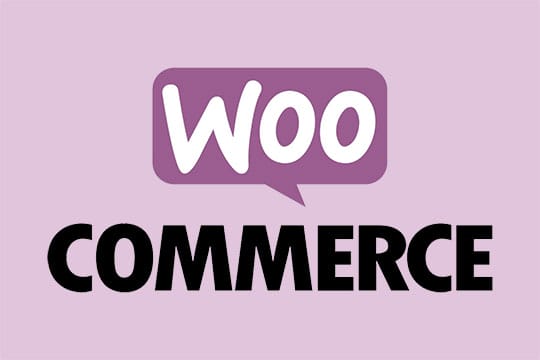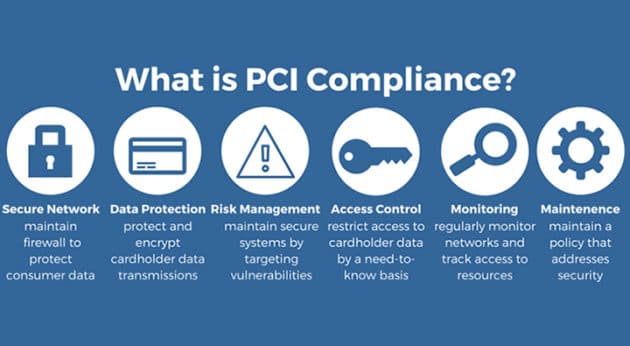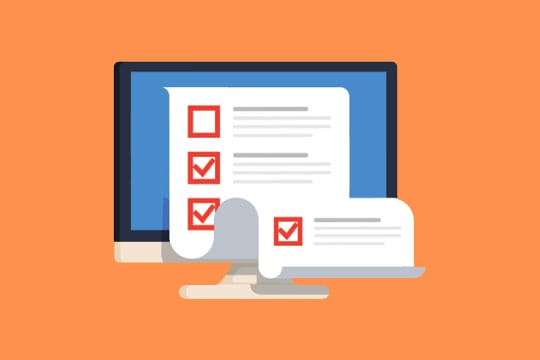WooCommerce is an Open-Source eCommerce platform for WordPress that is used to build beautiful and customizable virtual storefronts. But how secure are its payment methods? Does the platform adhere to the standards of PCI compliance?
Unless your eCommerce website is compliant with PCI-DSS standards, it tends to compromise the safety and privacy of customer data. And this could affect the reputation of your online business.
Here’s everything you should know to ensure your customers’ data is protected and safe on your WooCommerce store.
Is WooCommerce PCI Compliant?

The core WooCommerce plugin is not PCI-DSS compliant. However, it can be easily configured to be fully compliant. Ultimately, the responsibility of making the website PCI compliant lies with the store owner. And therefore, they should take all the steps to ensure their eCommerce website is safe and secure.
Ideally, several aspects of PCI-DSS compliance requirements are beyond the scope of WooCommerce or WordPress. Instead, they fall under the scope of the hosting provider or business practices your website abides by. The WooCommerce plugin is designed with security in mind and there are several ways you can ensure complete security.
Here are the key features of WooCommerce that can help your eCommerce website become PCI compliant initially:
Limited Access:
WooCommerce uses secure WordPress login that enables users to assign individual privacy levels and roles to different users. Limited access to customers’ payment information ensures improved security.
SSL Security:
Users can set WooCommerce to enforce SSL requirements during the checkout process. Having SSL certification ensures that your customer data remains fully encrypted before it can be transmitted over the web.
Safety of Stored Credit Card:
Ideally, native WooCommerce payment gateways are not designed to save customers’ credit card data. Even if a payment gateway allows saving the card for future payments, only the last 4 digits will be stored. This feature of WooCommerce ensures the improved safety of your credit card details.
Recommended for you: Managed WooCommerce Hosting by Nexcess – A Great Place to Live your Store!
What exactly is PCI Compliance?

Source: I-Verve.com
For any type of eCommerce business, maintaining high standards of security is important. It is a crucial criterion determining the trustworthiness and professionalism of your company. To ensure enhanced protection of customer data and high levels of privacy, there are several regulations and standards you can implement to ensure safety and security.
The most prominent among these is the PCI-DSS or the Payment Card Industry Data Security Standard. It is also recognized as the PCI standard.
The eCommerce industry is constantly challenged by sophisticated cyber attacks, posing a serious threat to data security and privacy. Hence, ensuring the safety of the payment gateway is important. It helps build trust in the minds of the customers, driving more sales and repeat sales.
But how can you demonstrate that your eCommerce website has a secure payment system? This can be done by making your viewers and audience aware that your website is PCI compliant.
PCI is a globally accepted standard that is managed by the Payment Card Industry Security Standards Council, established by JCB International, Visa Inc., MasterCard, Discover Financial Services, and American Express. The objective is to improve security and minimize fraud related to online credit card transactions.
If your eCommerce website accepts payment through credit card, it must be PCI compliant. Failure to adhere to PCI standards can cause your business severe financial penalties and it can also damage your reputation.
Key benefits of having a PCI-compliant website:

- With PCI-DSS compliance, there are rare possibilities that credit card data gets stolen when someone is purchasing from your online store. Features like double opt-in, two-factor authentication, and HTTPS deter hackers from stealing sensitive data from your eCommerce website.
- It indicates that your online store has a secure payment system, which helps instill a sense of trust among the customers to complete the checkout process safely.
- It allows eCommerce merchants to reduce chargebacks which can result in significant losses to your business. As cyber-attacks are more advanced, hackers steal a customer’s credit card information and use the same to buy products online. When the customer identifies this unexpected charge, they immediately suspend the payment. As a result, you will be left with nothing – no product back, no money.
- With PCI compliance, you can take a step towards deterring data leakage and hacking. This can help avoid lawsuits, which can cost your eCommerce business significant money, time, and reputation.
What are the requirements for PCI-DSS Compliance?

There are 12 core PCI-DSS requirements, categorized under the following areas”
| Goals | PCI-DSS Requirement |
|---|---|
| Build & Maintain Secure Network | 1. Install and use a robust firewall configuration that helps protect cardholder information. 2. Never use vendor-supplied defaults for security parameters and system passwords. |
| Safeguard Cardholder Data | 3. Protect all stored credit card data. 4. Ensure encryption of cardholder data across public, open networks. |
| Create a Vulnerability Management Program | 5. Use powerful anti-virus software and update it regularly. 6. Develop secure applications and systems. |
| Implement Full-Proof Access Control Measures | 7. Allow access to sensitive cardholder data only on a need-to-know basis. 8. Limit physical access to all stored cardholder data. 9. Set a unique ID for each user having computer access. |
| Test and Monitor Networks Regularly | 10. Efficiently monitor and track access to all cardholder data and network resources. 11. Test security processes and systems regularly. |
| Establish a Data Security Policy | 12. Create a definitive policy that helps address data security. |
Ideally, reporting PCI compliance is enforced by the payment processor. For this, you may be required to fill out specific questionnaires like Self-Assessment Questionnaire (SAQ). Your payment system is also scanned by an Approved Scanning Vendor (ASV) by the authorities.
You may like: 10 Free WooCommerce Extensions / Plugins to Supercharge your WordPress eCommerce Store.
Is WooCommerce safe?

WooCommerce clearly states that all the twelve PCI-compliance requirements are beyond its scope. Meaning that the other requirements fall under the responsibility of your hosting provider’s server environment.
Usually, any hosting provider can be made compliant, some servers are initially more compliant than others. Like managed VPS providers with control panels tend to be by-default compliant with many PCI requirements as it is pre-configured in their settings, which takes away a lot of work from the website owners.
So, if are serious about running your online business, and security is of the utmost importance, then you should always favor going for a VPS instead of shared hosting.
However, if you were to count only on the plugin, well you may some other criteria built-in with the plugin, but these aren’t enough to state that your payment method is PCI-DSS compliant.
Here are the three primary PCI-compliance requirements that WooCommerce fulfills for ensuring comprehensive security:
Protecting Stored Credit Card Information
WooCommerce may not provide complete protection of all stored credit card information, but it is built to NOT store that data in the first place. That means WooCommerce will store any credit card information that a customer uses to make payment on your website.
In case the customer chooses to set the payment method as a preferred option for future use, WooCommerce will only store the last four digits of the card number. This deters the cybercriminals from getting access to the card details. However, this security feature is available only with the native WooCommerce applications. If you use 3rd-party plugins, they may store full card details.
Enhanced Security with SSL
According to PCI standards, you are required to have a valid SSL certificate if you accept customer payments on your website. Having an SSL certificate ensures that any data your customers provide on your website is fully encrypted before being transmitted. This helps mitigate credit card frauds and hacking, making your online store more secure. Additionally, an SSL certificate also gives your website an SEO boost.
WooCommerce allows you to set the SSL requirement criteria on all checkout pages. Thus, WooCommerce aids in adherence to PCI standards by ensuring improved security through SSL. But it is important to validate with your website hosting provider if they can offer the SSL certificate.

WordPress Login System
The WordPress login system is another way that WooCommerce uses to support PCI compliance. It allows setting different levels of user access to sensitive credit card information. That means you can create different user roles and set unique login access to ensure better safety.
For instance, a blog post writer on your website can only create and edit posts but does not have the authority to access or view WooCommerce customer data. Thus, it is like setting up a “need-to-know only” access that can help you stay compliant with PCI requirements.
This is how WooCommerce provides a sizeable amount of security by integrating the above PCI compliance requirements.
Does WooCommerce Save Credit Card Information?

WooCommerce core plugin does not store credit card information even if a customer saves the payment method for future use, only the last 4 digits of the credit card will be stored.
So, if your question is – does my eCommerce store need to be PCI-compliant, then the answer will be NO. This is only when your WooCommerce store works on the core plugin and does not store, transmit, or process cardholder data. In such cases, payments are taken off-site – by using a gateway that typically uses its servers to receive payments.
However, if you are using third-party plugins that may store cardholder information or you collect, transmit, and process credit card data as stated in PCI standards, then your website must be PCI-DSS compliant.
You may also like: Magento vs Shopify vs WooCommerce: The E-Commerce Battle.
Conclusion & FAQ

To sum up, WooCommerce is not fully compliant with PCI standards. However, it provides a certain level of protection against loss of data or hacking sensitive cardholder information as per PCI-compliance requirements. Additionally, it also provides the flexibility to make your WooCommerce store PCI compliant by taking definitive measures that have been discussed in the FAQ section of this article.
Q. Is WordPress PCI compliant?
No; WordPress is not fully PCI compliant and only meets the requirements as stated under the guidelines of the Payment Card Industry Security Standards Council. However, the platform can be seamlessly updated to integrate other PCI-compliant features and make your website’s payment system full-proof against hacking and data loss.
Q. Is Shopify PCI compliant?
Shopify is another leading eCommerce platform that allows merchant businesses to offer a secure shopping experience to the customers by adhering to industry best practices in terms of security systems. It is a certified Level 1 PCI-DSS compliant platform that meets all six PCI-compliance requirements:
- Secure cardholder data.
- Maintain a secure network.
- Regularly test and monitor networks.
- Establish a vulnerability management program.
- Maintain a comprehensive data security policy.
- Set up strong access control measures.
So, unlike WooCommerce, Shopify wins the game when it comes to complying with PCI-DSS standards.
Q. How do I make WordPress PCI compliant?
To make your WordPress website PCI compliant, it is first important to choose a payment processor that adheres to PCI standards. Select a processor that provides a secure payment gateway. Only then you can move on to the following steps to make WordPress PCI-compliant:
- Set your merchant level: The rules for PCI compliance will vary depending on your business’ transactional volume. Therefore, you must first determine your merchant level. For instance, if you are a small business, you may qualify for Level 4, which has the simplest compliance process.
- Take the self-assessment questionnaire: Complete the self-assessment questionnaire (SAQ) that will help understand your current exposure to risks.
- Integrate an approved scanning vendor: The ASV can use automated tools to identify potential vulnerabilities in the hardware and software that collects and processes payment data.
- Get an SSL certificate: An SSL certificate gives your customers the peace of mind that they have an encrypted and direct connection with your website. The “HTTPS” your website’s domain is an addon security credential that meets the PCI standards.
- Use the right tools and plugins: Using the right plugins and tools for your WordPress or WooCommerce store can provide an added layer of security to your eCommerce store. For instance, WordPress has admin controls that enable you to limit access to cardholder information, ensuring enhanced data protection and privacy.
- More steps to payment verification: While making the payment, most payment gateways require the cardholder’s name, credit card number, and card expiry date. This data can be easily hacked by cybercriminals, leading to billions of dollars in annual losses. Including additional verification details like CVV, billing address, security questions, or OTP can ensure greater safety.
- Stay updated with the latest security policies: In addition to the above steps, it is also crucial to stay on top of the latest security policies and trends. This will push you a step forward towards getting PCI compliant. Latest antivirus protection, regular software updates, malware scanning, and security patches are a must to ensure improved website security. Additionally, your people must also be trained to use payment data safely and efficiently.




